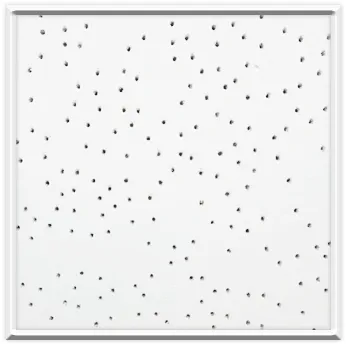- Afrikaans
- Albanian
- Amharic
- Arabic
- Armenian
- Azerbaijani
- Basque
- Belarusian
- Bengali
- Bosnian
- Bulgarian
- Catalan
- Cebuano
- Corsican
- Croatian
- Czech
- Danish
- Dutch
- English
- Esperanto
- Estonian
- French
- German
- Greek
- Hindi
- Indonesian
- irish
- Italian
- Japanese
- Korean
- Lao
- Malay
- Myanmar
- Norwegian
- Norwegian
- Polish
- Portuguese
- Romanian
- Russian
- Serbian
- Spanish
- Swedish
- Thai
- Turkish
- Ukrainian
- Uzbek
- Vietnamese
Nov . 09, 2024 19:39 Back to list
Composition and Materials Used in Mineral Fiber Ceiling Tiles Explained
What Are Mineral Fiber Ceiling Tiles Made Of?
Mineral fiber ceiling tiles are a popular choice in both commercial and residential construction due to their excellent acoustic properties, fire resistance, and aesthetic versatility. These tiles are primarily made from various natural and synthetic materials that create a lightweight and effective ceiling solution. Understanding the components of mineral fiber ceiling tiles can provide insights into their functionality, benefits, and environmental impact.
Composition of Mineral Fiber Ceiling Tiles
The primary ingredient in mineral fiber ceiling tiles is mineral wool, which is derived from natural elements. Mineral wool is produced from basalt rock, a type of volcanic rock, or from recycled materials such as glass. The rocks are heated to extremely high temperatures (over 1,600 degrees Celsius) and then spun into thin fibers, which are then bound together to form a rigid structure. The process involves a few key stages
1. Melting The raw materials, typically including basalt and recycled glass, are melted in a furnace. This process converts the solid materials into molten lava-like liquid.
2. Fiberization The molten material is then forced through spinnerets or nozzles to form fine fibers. This is done while the material is still hot, allowing it to create a fibrous structure as it cools, similar to how cotton candy is made.
3. Binding and Additives To enhance the properties of the ceiling tiles, specific binders and additives may be introduced during the batch mixing or curing process. Commonly used binders include phenolic resins, which help in forming a stable matrix. Additives may also include fire-retardant agents, anti-fungal treatments, and sound-absorbing materials.
4. Molding and Curing After forming the fibrous mass, the mixture is placed in molds and subjected to heat and pressure to create the desired tile shape and thickness. The curing process solidifies the structure and improves durability.
5. Finishing Finally, the tiles are cut to size and may undergo additional finishing processes, such as painting or applying a textured surface. The finishes not only enhance the aesthetic appeal but also improve the tile's acoustic and light-reflective properties.
Advantages of Mineral Fiber Ceiling Tiles
what are mineral fiber ceiling tiles made of

Mineral fiber ceiling tiles offer numerous advantages, making them a preferred choice for many applications
- Acoustic Performance With their dense, fibrous structure, these tiles are excellent at absorbing sound and reducing echo in any space, which is particularly beneficial in offices, schools, and auditoriums.
- Fire Resistance Mineral fiber tiles are non-combustible, making them a safer option for commercial and residential spaces. They can help slow down the spread of fire and provide additional safety for occupants.
- Moisture Resistance Many mineral fiber tiles are designed to resist moisture, helping to prevent mold and mildew growth, which is vital in humid environments like kitchens and bathrooms.
- Easy Installation These tiles are lightweight and can be easily installed in suspended ceilings, providing a smooth finish that can also accommodate lighting fixtures and HVAC systems.
- Eco-Friendliness Many mineral fiber tiles are manufactured using recycled materials, contributing to sustainable building practices. They can also be recycled at the end of their lifecycle, reducing waste.
Environmental Considerations
While mineral fiber ceiling tiles have numerous benefits, it is important to consider their environmental impact. The manufacturing process requires energy, and the use of synthetic binders may have implications for indoor air quality. Manufacturers are increasingly focusing on improving sustainability by adopting greener practices and incorporating more recycled content into their products.
Conclusion
Mineral fiber ceiling tiles are a versatile and functional choice for a variety of architectural applications. Their unique composition, combining natural and synthetic elements, makes them ideal for enhancing the aesthetics, acoustics, and safety of interior spaces. With ongoing advancements in manufacturing practices, these tiles continue to evolve, balancing performance with environmental responsibility.
-
Transform Interiors with PVC Gypsum Ceiling: A Stylish, Durable, and Moisture-Resistant SolutionNewsMay.19,2025
-
The Smart Interior Upgrade: Discover the Durability and Versatility of Gypsum Ceiling Access Panel SolutionsNewsMay.19,2025
-
The Smart Choice for Interior Design: Discover the Value of PVC Gypsum Ceiling SolutionsNewsMay.19,2025
-
Mineral Fiber Ceiling Tiles: The Smart Blend of Performance and AestheticsNewsMay.19,2025
-
Mineral Fiber Ceiling Tiles: The Superior Choice Over Gypsum for Sound and Fire SafetyNewsMay.19,2025
-
Mineral Fiber Ceiling Tiles: Eco-Friendly Strength and Style for Every CeilingNewsMay.19,2025







